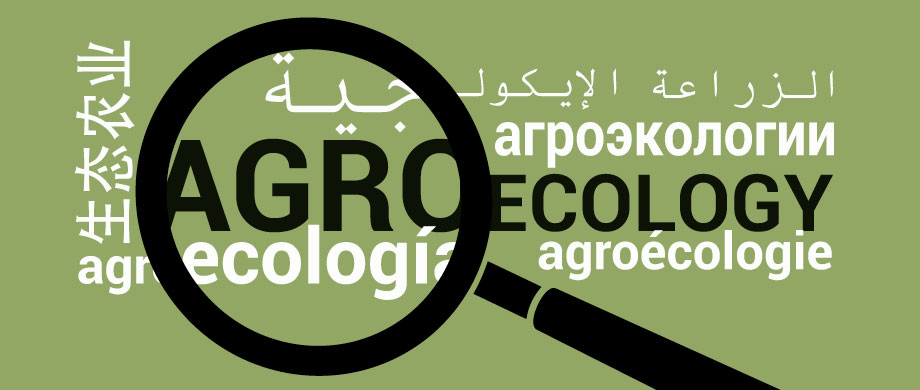Agroecology has been defined in many ways, in many places, and by many different stakeholders. Since the 1920s, scientist and researchers have used the term agroecology to refer to the application of ecological principles to agriculture. However, it was not until the early-1980s that the discipline of "agroecology" was named by ecologists, agronomists and ethnobotanists.
Because of this wide spectrum of different applications and understandings of the term agroecology, FAO has organized a database of definitions. FAO is collecting various definitions of agroecology from published documents, authored by scientists, civil society, academia, governments, legal documents and policies, among other sources.
This database shows how diverse agroecology can be. Yet it also demonstrates that different definitions use and share common elements, adjusted to the local circumstances. These common elements are captured by FAO in its framework on agroecology.
FAO’s framework of 10 elements on agroecology is derived from the common principles articulated for agroecology, including a combination of bio-physical and socio-economic elements that are grounded in the three pillars of sustainable development – the social, the economic and the environmental. Different elements may come into play in various configurations, with a strong blend of social, economic and environmental aspects.
Agroecology is the integrative study of the ecology of the entire food system, encompassing ecological, economic and social dimensions.
Definition
2003
Agroecology is a scientific discipline that seeks to provide an objective, ecologically based assessment of the structure, function, multidimensionality, and special scale of food systems. It is a complex science, one that links the ecological, economic, social, ethical, and legal aspects of food production. All spatial scales are considered, from...
Definition
2004
Wezel et al. (2007) have observed that the word agroecology is variously used to refer to a science, a movement and a practice. In a book written by, and largely for, La Via Campesina (LVC), Machín Sosa et al. (2010:16, translated from the Spanish) similarly note that “for the social...
Definition
2013
Agroecology is a way of life and the language of Nature that we learn as her children. It is not a mere set of technologies or production practices. It cannot be implemented the same way in all territories. Rather it is based on principles that, while they may be similar...
Definition
2015
Agro-ecology is the study of the relation of agricultural crops and environment.
Definition
2003
Agroecology is considered jointly as a science, a practice and a social movement. It encompasses the whole food system from the soil to the organization of human societies. It is value-laden and based on core principles.
As a science, it gives priority to action research, holistic and participatory approaches, and transdisciplinarity...
Definition
2016
Total results:19

